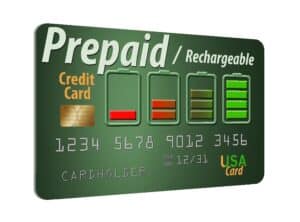The loan-to-cost ratio (LTC ratio), is calculated by taking the loan amount of a commercial mortgage and dividing it by the property’s total project costs. Project costs can include things like the purchase price, renovation costs, construction costs, and other related expenses incurred as a part of completing the improvements or repairs. The LTC ratio…
What is
Business Prepaid Card: What It Is & How It Works
A business prepaid card is a type of card that needs to be loaded with money before you can use it to make purchases. It helps you set a limit on your business expenses and not worry about the interest rates and penalty fees associated with a small business credit card. Our best business prepaid…
What Is a Portfolio Loan? Types, Rates & Terms Explained
A portfolio loan is a mortgage loan that a lender retains and does not sell on the secondary market. Since it is never sold to another investor, a lender has more control over the eligibility criteria it deems acceptable. This makes a portfolio loan a good option to consider if you do not qualify for…
What Is CCaaS? Benefits, Features & Top Providers
Contact Center as a Service (CCaaS) is a cloud-based software integrating various customer channels and tools like analytics, interactive voice response (IVR), and call management. CCaaS solutions aim to improve customer and user experiences to build and strengthen client relationships and loyalty. It simplifies communication by helping agents interact with customers effectively and seamlessly through…
Vacancy Rate Calculator: A Full Guide for Investors
A vacancy rate represents the percentage of unoccupied units in a multi-unit rental property. It is a helpful indicator for determining if a rental property is performing well and whether it is or will be a profitable investment. To understand more about what a vacancy rate is, we’ll utilize a vacancy rate calculator and examine…
What Is One-click Checkout & How Does It Work?
Are you struggling with cart abandonment and a lengthy checkout process? One-click checkout can help your customers complete their purchase faster and easier.
One-click checkout is an ecommerce feature that lets customers complete their purchases with a single click and does away with the usual multistep checkout process. It streamlines the transaction by securely storing customer information and payment details, allowing for quick and frictionless purchases. This feature can help reduce cart abandonment rates, boost conversions, and enhance…
Leadership vs Management: Understanding the Difference
Leadership and management are often used interchangeably, but they are not the same thing. While both roles involve guiding and directing a team, the difference between leadership and management comes down to creativity vs accountability. Understanding the difference between leadership vs management can help your employees thrive, leading to increased productivity and employee satisfaction. What…
What Is an Employee Attendance Policy? (+ Free Template)
Employee attendance policies are company documents, often part of your handbook, that clearly define attendance requirements at your company. These should include definitions, indicate how employees may be disciplined for violations of the policy, and an employee acknowledgement. For an example of how to draft yours, download our free attendance policy template and customize it…







